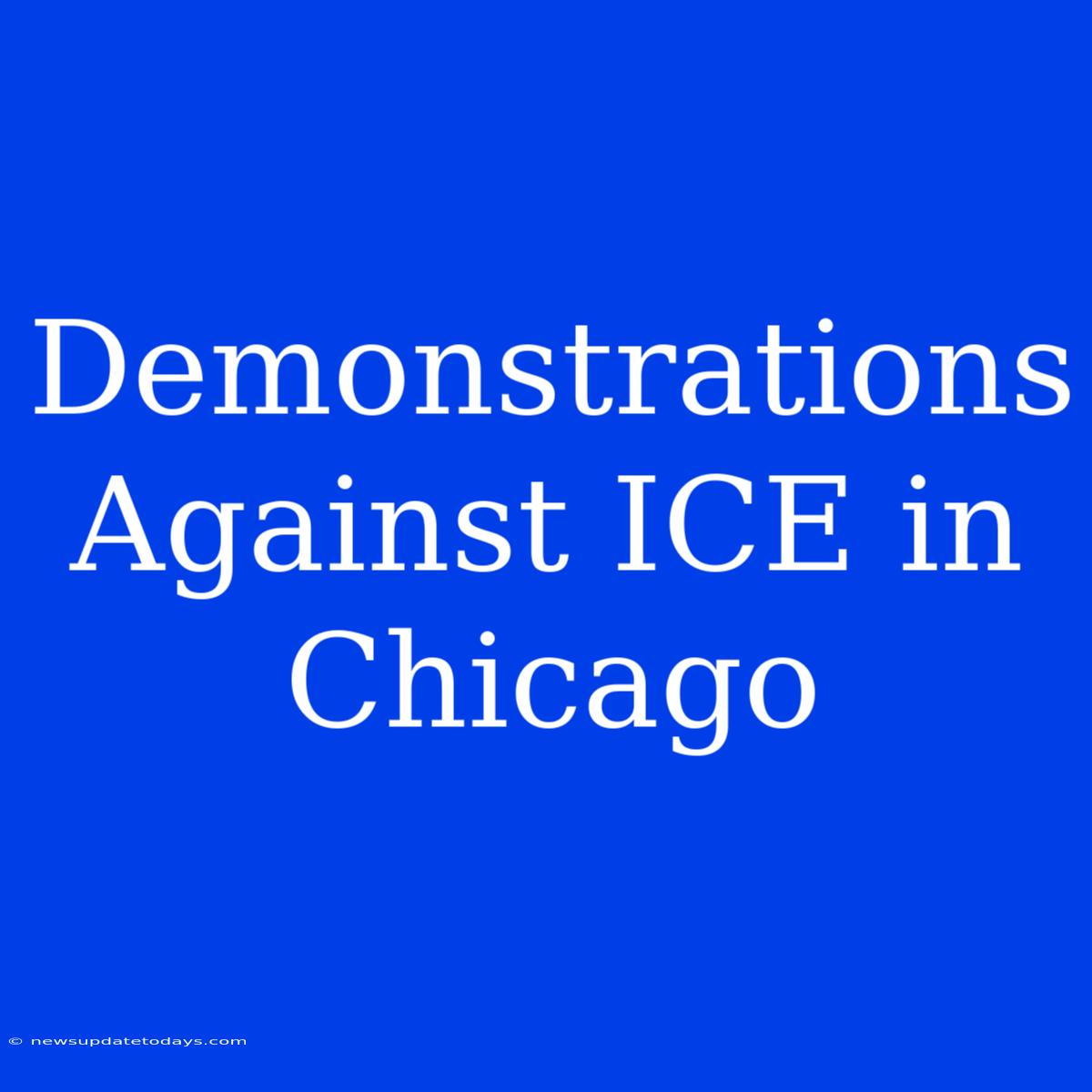Chicago's Fiery Resistance: Demonstrations Against ICE
Chicago, a city known for its vibrant spirit and progressive politics, has been a hotbed of protests against Immigration and Customs Enforcement (ICE). These demonstrations, ranging from peaceful marches to passionate rallies, reflect a deep-seated concern within the community about ICE's policies and practices. This article delves into the history, motivations, and impact of these crucial demonstrations.
A History of Activism: From Silent Protests to Vocal Outrage
The demonstrations against ICE in Chicago haven't sprung up overnight. They are the culmination of years of activism, fueled by individual stories of family separation, deportation, and the perceived injustices within the immigration system. Early protests were often smaller, localized events. However, as awareness grew, fueled by national news coverage and social media, these demonstrations swelled into large-scale, city-wide events.
Key Motivations Behind the Protests
Several factors have driven the surge in anti-ICE demonstrations in Chicago:
-
Family Separations: The Trump administration's "zero tolerance" policy, which led to the separation of families at the border, ignited widespread outrage and fueled protests across the country, including Chicago. This inhumane policy struck a particularly sensitive chord in a city with a large and diverse immigrant population.
-
Deportation of Dreamers: The uncertainty surrounding the future of DACA (Deferred Action for Childhood Arrivals) recipients, commonly known as "Dreamers," has been a significant catalyst for protests. Many Chicagoans fear the potential deportation of young people who have grown up in the city and contributed to its fabric.
-
Concerns about Due Process: Protesters frequently raise concerns about due process violations, alleging that ICE agents have engaged in aggressive tactics, including raids and detentions without sufficient legal basis. These accusations fuel the perception of ICE as an unjust and oppressive force.
-
Community Solidarity: The demonstrations are not merely political acts; they are also powerful expressions of community solidarity. Chicago's diverse population has come together to support immigrant rights and oppose what many view as discriminatory practices.
The Impact of the Demonstrations
While it's difficult to quantify the direct impact of these demonstrations on ICE policy, they have undoubtedly played a significant role in:
-
Raising Public Awareness: The protests have successfully brought the issue of immigration reform into the mainstream conversation, prompting discussions about the ethics and effectiveness of ICE's actions.
-
Mobilizing Support for Immigrant Rights: The demonstrations have helped galvanize support for immigrant rights organizations and advocacy groups, strengthening their efforts to provide legal assistance and community support to immigrants facing deportation.
-
Putting Pressure on Elected Officials: The protests have served as a powerful reminder to elected officials of the importance of immigration reform and have encouraged them to take a stronger stance against what many consider to be abusive practices.
The Future of the Movement
The fight for immigration reform is far from over. As long as concerns remain about ICE's policies and practices, demonstrations against ICE in Chicago and other cities are likely to persist. The future of this movement will depend on continued community engagement, sustained political pressure, and the willingness of individuals to stand up for what they believe in. The ongoing demonstrations in Chicago serve as a powerful testament to the resilience of the human spirit and the enduring fight for justice.

